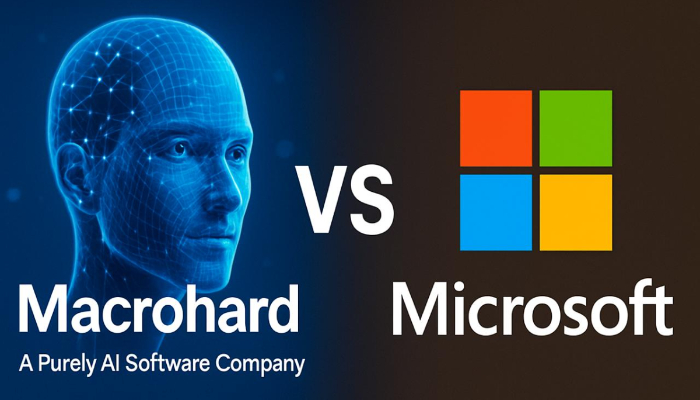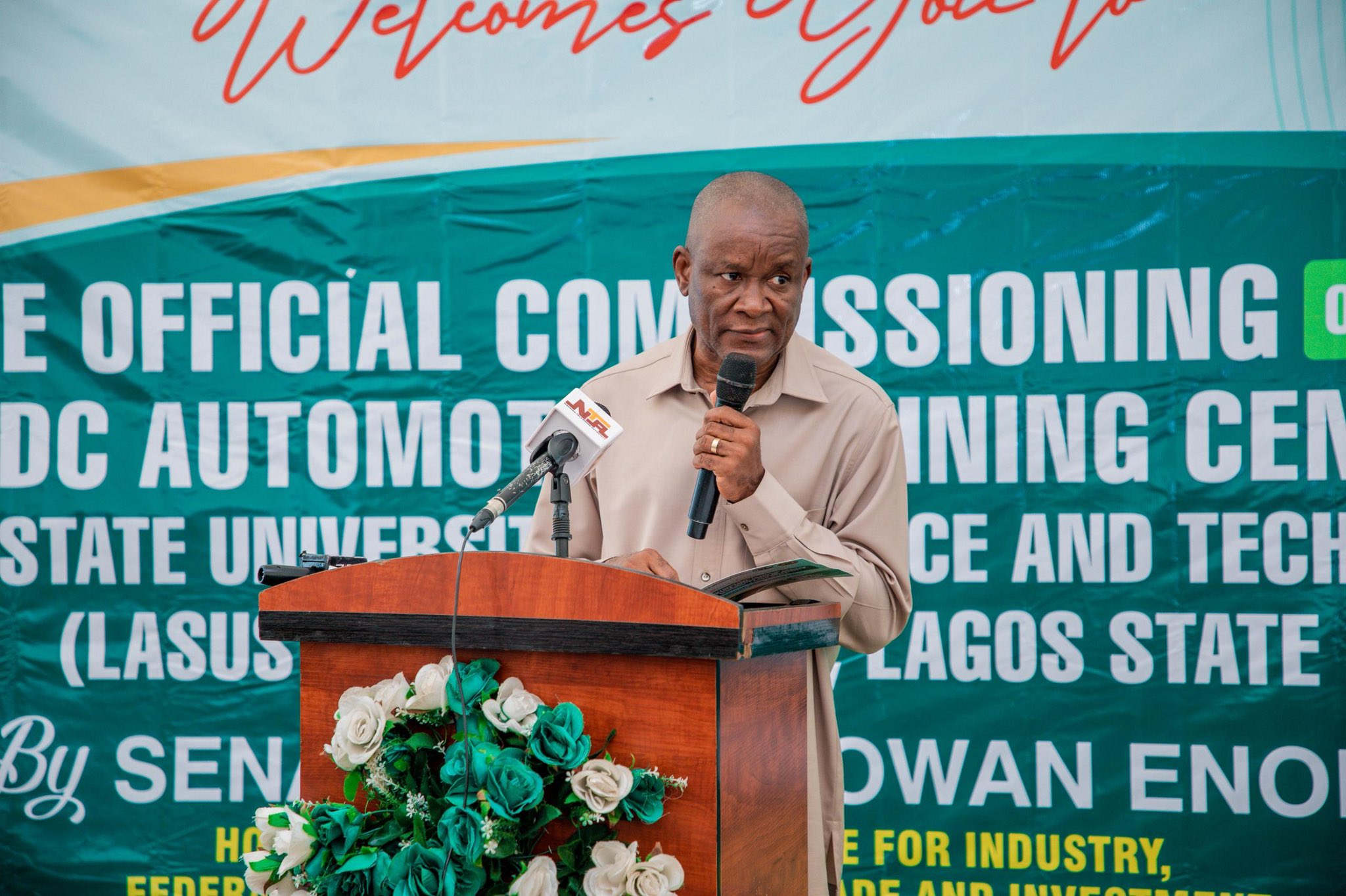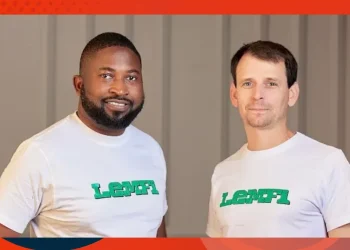Elon Musk just threw down the gauntlet against Microsoft when he announced that his xAI company will build “Macrohard” – a purely AI-driven software company designed to simulate and potentially replace traditional tech giants.
The global software market stands at $1.2 trillion, with Microsoft holding a dominant position through Windows, Office 365, and Azure cloud services. Musk’s audacious plan? Use artificial intelligence to do everything Microsoft does, but without human developers.
“Join xAI and help build a purely AI software company called Macrohard. It’s a tongue-in-cheek name, but the project is very real!” Musk posted on X.
Musk Files Trademark for Microsoft Rival
Documents from the United States Patent and Trademark Office reveal xAI filed a trademark application for “Macrohard” on August 1. The filing outlines ambitious plans for AI-powered services including software for artificial speech and text production, chatbot technology, and AI-driven video game development.
Musk first teased the name “Macrohard” in 2021 with a simple post stating “Macrohard >> Microsoft.” He reshared that post in July 2024 during a global Microsoft outage that disrupted services for millions of users worldwide.
AI Agents Replace Human Development Teams
Macrohard’s core strategy centers on deploying hundreds of specialized AI agents to handle every aspect of software development. These agents would manage coding, testing, product design, quality assurance, and even enterprise-level management functions.
“We are creating a multi-agent AI software company where Grok spawns hundreds of specialized coding and image/video generation/understanding agents all working together,” Musk explained in a July post that hinted at the project.
The system would also include virtual user agents that simulate human interactions with software in virtual machines, continuously refining products until they reach optimal performance.
Microsoft and similar software companies don’t manufacture physical hardware. They create digital products and services. If AI can replicate human cognitive tasks, it should theoretically simulate entire software operations.
Colossus Supercomputer Powers Ambitious Plans
Macrohard will likely run on xAI’s Colossus 2 supercomputer in Memphis, one of the world’s most powerful AI computing clusters. Musk has confirmed plans to acquire millions of Nvidia GPUs to expand the system’s capabilities, joining the race with OpenAI and Meta for AI computing supremacy.
The supercomputer already ranks among the most advanced in existence, and Musk continues scaling it up to support complex AI operations. This infrastructure investment demonstrates serious commitment beyond social media announcements.
Tesla’s CEO has also been positioning his electric vehicle company as an “AI robotics company” rather than just an automaker, suggesting broader integration across his business empire.
Microsoft Partnership Tensions Fuel Competition
Musk’s Microsoft challenge comes amid his ongoing disputes with OpenAI and its partnership with the Redmond-based tech giant. The Tesla CEO has filed multiple lawsuits against OpenAI, claiming the company betrayed its founding mission by becoming a “de facto subsidiary” of Microsoft.
“OpenAI has been transformed into a closed-source de facto subsidiary of the largest technology company in the world: Microsoft,” Musk stated in one lawsuit filing.
Recent reports suggest Microsoft may be reconsidering its OpenAI partnership as the AI company pushes for for-profit status. Some industry insiders describe Microsoft’s position as a “nuclear option” to protect its interests.
Cross-Platform Synergies Create Ecosystem Advantage
Macrohard connects with Musk’s broader AI and robotics strategy across Tesla, Neuralink, and SpaceX. Success in AI-driven software development could enhance Tesla’s autonomous driving systems, factory automation, and robotaxi operations.
This interconnected approach creates potential competitive advantages. Real-world data from Tesla vehicles and manufacturing facilities could train Macrohard’s AI agents, while improved software capabilities could boost performance across Musk’s entire business portfolio.
The strategy also reduces risk through diversification while amplifying potential returns across multiple high-growth sectors.
Industry Experts Question Feasibility
Despite Musk’s confidence, technical challenges remain substantial. Software development involves complex problem-solving, creative thinking, and nuanced decision-making that current AI systems struggle to replicate consistently.
Microsoft has decades of enterprise relationships, established infrastructure, and deep pockets to defend its market position. The company has already invested billions in OpenAI and integrated AI capabilities across Windows and Office products.
Regulatory scrutiny around AI deployment, particularly in sensitive sectors like healthcare and finance, could also slow Macrohard’s growth trajectory.
High-Stakes Bet on AI Future
Macrohard joins Musk’s expanding portfolio alongside Tesla, SpaceX, X Corp, The Boring Company, and Neuralink. The venture represents his most direct challenge to established tech giants using purely AI-driven approaches.
Success could fundamentally reshape how software gets developed and maintained. Failure might reinforce limitations of current AI technology for complex creative and technical tasks.
Early hiring efforts suggest Musk expects rapid development. The company actively recruits engineers and AI specialists to build what could become the first fully automated software development operation.
The announcement has generated mixed reactions across social media and tech industry circles, with some viewing it as typical Musk hyperbole while others see potential for genuine disruption.
Whether Macrohard can deliver on its ambitious promises remains to be seen. But Musk’s track record of turning bold ideas into market-leading companies adds credibility to what might otherwise seem like science fiction.
The next few months will reveal whether AI technology has advanced enough to automate complex software development – or if human creativity and problem-solving remain irreplaceable in the digital age.















